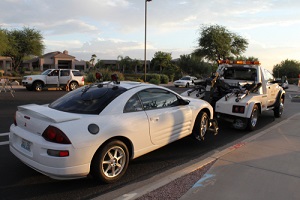 If you have been in a car accident and the police have responded to the scene, you may be wondering what your rights are. In some situations, the police may search your vehicle; however, it is important for you to be aware that police are not always free to conduct a search, and you are protected by the Fourth Amendment against law enforcement searching you and your property unreasonably.
If you have been in a car accident and the police have responded to the scene, you may be wondering what your rights are. In some situations, the police may search your vehicle; however, it is important for you to be aware that police are not always free to conduct a search, and you are protected by the Fourth Amendment against law enforcement searching you and your property unreasonably.
If you believe that your vehicle has been searched unreasonably after an accident, it is important that you understand your rights and reach out to a civil rights attorney who can help.
When Can Police Conduct A Search?
Contrary to popular belief, the police are not always entitled to conduct a search, and in many cases, you have the right to turn down a search. You are protected by the Fourth Amendment, which states that you may not be subjected to unreasonable searches and seizures, and that a search can only be conducted with a warrant.
However, circumstances such as probable cause can change the situation and enable an officer to conduct a search. After a car accident, there are some situations in which your vehicle may be legally searched.
Circumstances That Allow A Search On Your Car After An Accident
As a general rule, the police do not have the “right” to search a vehicle whenever they wish, even if that vehicle is currently unoccupied or at the scene of an accident. If an officer has obtained a warrant and presented it to you in order to search your vehicle, you must comply; however, absent a warrant, only certain circumstances permit an officer to conduct a search.
These include situations that fit into the plain view doctrine, as well as when an officer can claim probable cause or if you give your consent to a search.
The Plain View Doctrine
One of the most common rationales utilized by law enforcement to justify the legality in searching a vehicle is the plain view doctrine, which states that something that is in plain and clear public view and can be seen by any passersby exempts the police from needing a warrant.
For example, if you are in an accident and your windshield is broken to reveal that you are carrying a weapon on your backseat, the police may be able to argue that because the weapon is clearly visible to anyone, they do not need a warrant in order to examine it.
Impounding After An Accident
 A very common reason for a vehicle to be searched after an accident is when it is impounded, if that process applies. In cases of drunk driving that leads to a collision, a vehicle may be impounded due to the nature of the charge.
A very common reason for a vehicle to be searched after an accident is when it is impounded, if that process applies. In cases of drunk driving that leads to a collision, a vehicle may be impounded due to the nature of the charge.
During the impounding process, an inventory is taken of the vehicle to ensure that all of the original owner’s possessions are documented so that they can be returned when the vehicle is picked up. As part of this inventory, the police may become aware of items within the vehicle without a warrant. This occurs as part of the impound process and is not illegal; what the police find in your vehicle while taking inventory can be used against you.
Offering Voluntary Consent
An officer may ask you if they can search your vehicle when they respond to an accident. You are within your rights to say no; you do not necessarily need to comply with an officer’s request to search your car. However, if you do agree and offer your consent voluntarily, the police are then within their rights to use anything they find in your vehicle against you.
It is important to note that your consent must be given voluntarily; an officer cannot coerce, threaten or otherwise force you to give your consent to a search. If you were forced to give your consent when police asked to search your car after an accident, you may have an additional issue to address with your civil rights attorney.
Work With A Civil Rights Attorney If You Have Been Unreasonably Searched
If you believe that your rights were violated by a police officer who searched your car after an accident without your consent and without probable cause, you may have a case for unreasonable search and seizure. Be sure to reach out to a civil rights attorney as soon after the accident as possible.
The lawyers at The Brown Firm would be happy to explain your options and help you to determine if you have a case. Reach out to schedule a consultation with a civil rights professional so that you can pursue legal action if it is warranted in your situation.

